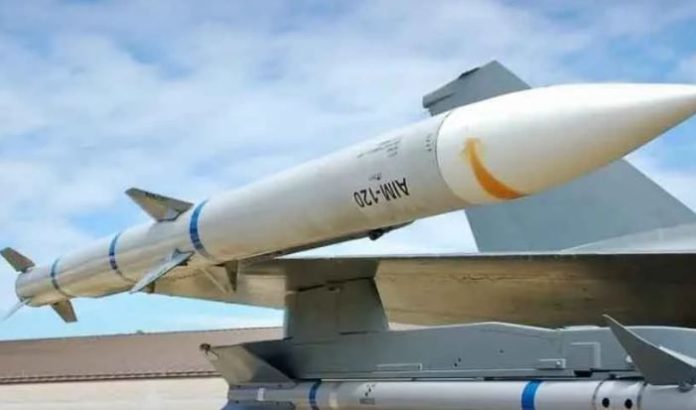ISLAMABAD, OCT 7: The United States has approved the sale of advanced air-to-air missiles to the Pakistan Air Force (PAF), a move seen as a sign of revived military collaboration between the two countries.
The new deal will provide Pakistan with the AIM-120D-3 Advanced Medium-Range Air-to-Air Missiles (AMRAAMs) — the most sophisticated variant in the series — by 2030, according to official documents released by Washington.
The contract, valued at $2.5 billion, was awarded to Raytheon Company and will cover the production of AMRAAMs for several allied nations, including Pakistan, Turkiye, and other US partners, the US Department of War (previously defense) confirmed.
AIM-120D-3: Major upgrade for F-16 fleet
The AIM-120D-3 missile represents the latest generation of the AMRAAM family, designed for beyond-visual-range (BVR) combat and capable of neutralizing enemy aircraft and incoming missiles with higher accuracy and longer reach.
Defense experts say the new acquisition will significantly enhance the strike capability and air defense potential of Pakistan’s F-16 fleet. The upgraded missiles will replace the AIM-120C-5 versions currently in service, which were supplied with the F-16 Block 52 aircraft purchased by Pakistan in 2010.
“The AIM-120D-3 will give the Pakistan Air Force a distinct edge in terms of precision and range in BVR engagements,” defense analysts noted, describing the move as a critical modernization step.
Pakistan’s request for modern missiles
Pakistan had allegedly been lobbying for new-generation AMRAAMs for several years, seeking to modernize its air defense capabilities in line with regional developments.
The breakthrough reportedly came after a series of high-level meetings in July, when PAF chief Air Marshal Zaheer Ahmed Baber Sidhu visited Washington and held discussions with senior US military and political officials.
Also Read: Chinese weapons did ‘exceptionally well’ in May: ISPR DG
Army chief Field Marshal Asim Munir had also recently held several meetings with US President Donald Trump and top defence officials, indicating that Pakistan-US military relations had once again entered a phase of practical cooperation.
Earlier today, Inter-Services Public Relations (ISPR) Director General (DG) Lt Gen Ahmed Sharif Chaudhry had said that Pakistan’s military development strategy revolved around incorporating effective, efficient platforms and promoting domestic defense technologies.
In an exclusive interview with international publication Bloomberg, the ISPR chief emphasized that Pakistan remained open to acquiring advanced technologies from both eastern and western sources, while also strengthening its own indigenous capabilities.
Pakistan’s defence focus: Efficiency and self-reliance
Lt Gen Ahmed Sharif told Bloomberg that Pakistan’s defense approach was guided by a desire for technological efficiency and operational effectiveness rather than rivalry.
“Our military development strategy has always been to incorporate effective and efficient platforms and domestic Pakistani technology,” he said.
He further stated that Pakistan is “ready to acquire all kinds of technology, whether it is self-made or from the East and the West,” signalling Islamabad’s pragmatic stance on defense modernisation.

















